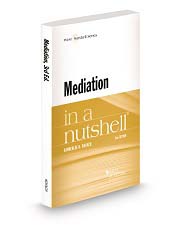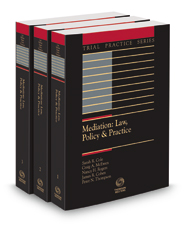
Black's Law Dictionary defines mediation as a method of non-binding dispute resolution involving a neutral third party, a mediator, who tries to help the disputing parties reach a mutually agreeable solution.
The mediator, as a neutral third party, can view the dispute objectively and assist the parties in considering alternatives and options that they might not have considered. The mediator is neutral in that he or she does not stand to personally benefit from the terms of the settlement, and is impartial in that he or she does not have a preconceived bias about how the conflict should be resolved.
The mediation session is private and confidential. Matters unique to the mediation discussion have been held by Federal courts to be privileged and inadmissible in any adversarial administrative or court proceeding with the exception of certain issues such as fraud, waste and abuse, or criminal activity. If a settlement was not resolved during a mediation session, and the dispute was litigated in any administrative or judicial proceeding, neither the mediator nor his/her notes can be subpoenaed by either party.
 Mediation in a Nutshell, 3d
by
Mediation in a Nutshell, 3d
by
 Mediation Law, Policy, Practice
by
Mediation Law, Policy, Practice
by
 Mediation Representation: Advocating as a Problem-solver in any Country or Culture
by
Mediation Representation: Advocating as a Problem-solver in any Country or Culture
by
 The Middle Voice: mediating conflict successfully
by
The Middle Voice: mediating conflict successfully
by
 Representing Clients in Mediation: a guide to optimal results based on insights from counsel, mediators and program administrators
by
Representing Clients in Mediation: a guide to optimal results based on insights from counsel, mediators and program administrators
by